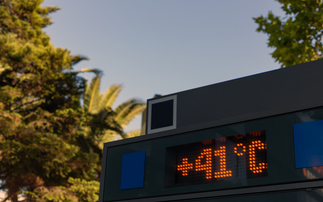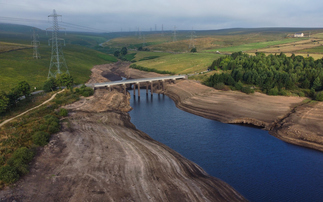The arguments may sound familiar but Richard Black finds climate talks have matured since he last attended three years ago
It's not exactly like re-discovering a schooldays sweetheart on Friends Reunited, but nevertheless my first dive into UN climate convention negotiations after three years generated questions that I guess are similar.
Will I still recognise the process? What changes might time have wrought? Will the strange attraction that kept us together during the seven or eight years I spent up close and personal with the process while at the BBC have vanished in smoke?
Judging by the first day of this week's talks in Bonn - the final preparatory session before the potentially pivotal summit that begins at the end of November in Paris - the analogy holds. Time has moved on and the face looks a little different, but the underlying personality remains distinctly recognisable.
Glacial progress, jargon and the easy eruption of wrangles whose origins are scarcely fathomable without knowing the history of UN negotiations on trade and development as well as climate change: these have not changed. So much was evident from the very outset of the talks.
How short, how simple?
Everyone agrees that if a deal is to be concluded at the Paris summit, the text that governments will negotiate there needs to be as short and simple as possible.
But the shorter and simpler it is, the more it leaves out. And several blocs that (more or less) represent developing countries were distinctly unhappy that the short and simple text drafted by the co-chairs before the meeting omitted key concerns - in particular, detail on how the poorest nations might be compensated for losses and damage caused by the historical emissions of countries that industrialised first.
Some Western negotiators privately agree with their developing country peers that the text was somewhat unbalanced, that it had not paid sufficient attention to developing countries' demands. And it didn't help that the co-chair leading the negotiations comes from the US, traditionally the bete noire of climate-vulnerable nations and environment campaigners alike.
After a morning of wrangling that looked like it was about procedures but which was actually a power-play, agreement was reached on a path forward under which different blocs will propose additions to the co-chairs' text.
And the key unknown, halfway through the first afternoon, is whether they collectively submit 20 or 2,000 added paragraphs. The first would still leave things short and simple enough to be manageable; the second would not, leaving far too much to be done in the 14 negotiating days that now remain before the end of the Paris summit.
Growing pains
Although this all seemed depressingly familiar on the surface by comparison with the lead-up to the Copenhagen summit, the familiarity is misleading. The present is not the past.
The increased desire to make progress is tangible. There is a seriousness about the negotiators' work that was lacking in the pre-Copenhagen days where, frankly, it seemed to be a lot more about grandstanding than hard graft.
Despite the text expanding currently in progress, there appears a willingness to recognise that not every special claim needs inclusion and debate.
Even deployment by South Africa's lead negotiator
Crunch moment
The feeling that we're approaching the end-game is palpable. Virtually all countries appear to be serious about tying up a deal in Paris - not any deal, by any means - but that's a huge and profound change from Copenhagen, when, as I wrote in my closing analysis six years ago, the big nations simply weren't convinced that it was in their national interest.
For anyone who's fresh on the scene - or who's terminally jaded by the jockeying - I'd refer back to an observation made by David Miliband during his time as UK Foreign Secretary.
Climate change negotiations, he said, were the most difficult and complex that he ever encountered - more than nuclear arm control, more than anything else that came across his desk.
And it should logically become even more difficult as the possible signing of the first deal under which all nations constrain carbon emissions hoves into view.
So the thrust to "keep it simple" is likely to be a constant theme of this week - along with reminders that little time remains, that the world is watching, and (perhaps) that talks "hang on the brink".
But the simplicity we have now is a far cry from the wilful, wanton chaos of Copenhagen.
Even old friends grow up. The skin may look the same, but have a very different person living inside.
Richard Black is director of the Energy & Climate Intelligence Unit and a former BBC Environment Correspondent.
This article is part of BusinessGreen's Road to Paris hub, hosted in association with PwC







